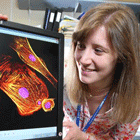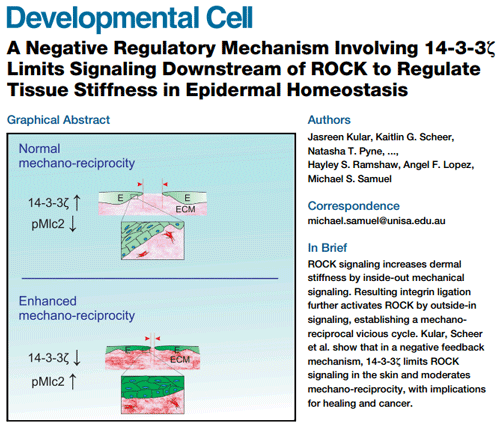 Researchers in the Tumour Microenvironment Laboratory led by Dr. Michael Samuel, in collaboration with colleagues at the CCB and the Garvan Institute have discovered that inhibiting the molecular chaperone protein 14-3-3ζ can accelerate the healing of skin wounds two-fold.
Researchers in the Tumour Microenvironment Laboratory led by Dr. Michael Samuel, in collaboration with colleagues at the CCB and the Garvan Institute have discovered that inhibiting the molecular chaperone protein 14-3-3ζ can accelerate the healing of skin wounds two-fold.
While studying the function of the Rho-ROCK signalling pathway in regulating the production and remodelling of the extra-cellular matrix (ECM), researchers discovered that signalling through ROCK is negatively regulated by 14-3-3ζ and that mice lacking this isoform exhibited enhanced re-establishment of the ECM in wounds. This was accompanied by accelerated wound healing, a phenomenon that was fully recapitulated when wild-type wounds were treated with a novel pharmacological inhibitor of 14-3-3 developed at the CCB.
This research, which uncovers the mechanism by which 14-3-3ζ regulates ECM production and remodelling via ROCK is published in Developmental Cell, 35(6), 759–774, (Dec 21, 2015). A Negative Regulatory Mechanism Involving 14-3-3ζ Limits Signaling Downstream of ROCK to Regulate Tissue Stiffness in Epidermal Homeostasis




